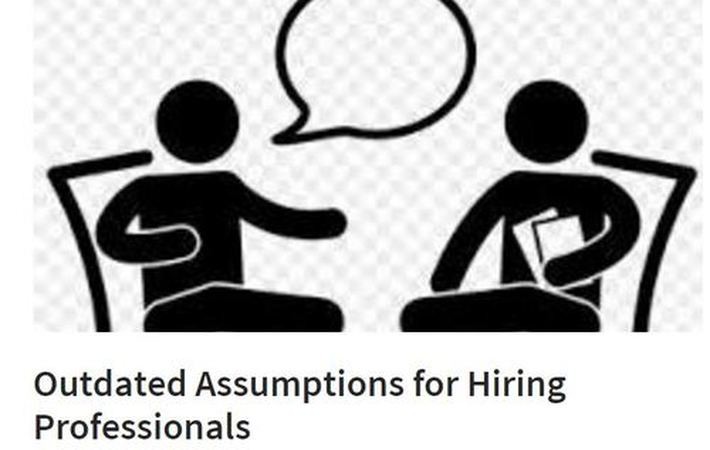
Published on 12/22/2016 | Strategy
The right fit is a common phrase heard around the office. The people we hire (and contract out for service) are a reflection of our brand and should blend into our culture. Intrinsically, we have to establish a certain amount of trust with new hires and become advocates for their efforts. There’s little wonder why businesses take so much time to onboard new hires today. In the U.S., we are far removed from the days of on the spot hiring and this is to be expected.
In 2015, Glassdoor reported that the average interview process in the U.S. was 22.9 days, which is almost double the 12.6 days in 2010. Where have all the good candidates gone? Has our risk aversion led to a status quo culture? Are we losing key talent to competitors while we second guess ourselves? Has hiring become a place for a good candidate to get lost in the shuffle? The answer to these questions is an indisputable “YES”.
Today, we have several hiring assumptions that managers and human resource practitioners should make an effort to eradicate from operations. Depending on your industry, I would argue that lack of qualified professionals who possess the knowledge, skills, and ability to perform work in the business are not your most pressing concern. Your outdated assumptions may be the biggest culprit.
I have pointed out a few common assumptions, but there is definitely room for more:
The biggest value in our certification culture (and promotion of these standards worldwide) is that it provides a common language across the department and the enterprise. If you are a Project Management Professional (P.M.P.), you understand what project initiation means and so do others with the certification. This is not to say an intelligent individual would be unable to complete the project assigned or communicate effectively without the certification. A certification should not be the deciding factor between the right candidate and the right credential. Whoever is hired needs to translate those skills and/or certifications into results for the enterprise. Of course, exceptions should be made if required by statute, policy, etc.
When George Washington was elected President of the United States, no one asked him if he was “qualified”. George Washington was the ideal person to step into this leadership role after fighting for the rights of countrymen. Can you imagine if the electorate had selected someone with prior experience, but didn’t support the message of the people? Would the people have been as motivated to cultivate this free and separate nation? The needs of the people outweighed the desire for experience and produced a new nation with a new way of life. At some point, each of us was given the opportunity to use our talents to provide value to the business. A talented and equally eager employee is more valuable than someone with the previous title, but a poor performance record in the role.
Each enterprise has specific ways of doing things that are unique to the business. This specific knowledge is costly to transfer among staff, while the general knowledge is inexpensive to transmit. This transfer of knowledge depends on several factors including organizational structure, technology, and staff. Our most valuable skill is our ability to learn and apply this knowledge to our work. I don't mind teaching a new hire and find the individuals who exceed expectations have diverse experience, impressive accomplishments and think critically
We are going, to be honest for a brief second about this statement: Education is the great equalizer as it levels the playing field. This is simply untrue and wishful thinking to a large extent. Unless you are in a highly skilled low competition industry, whom you know will be the biggest factor in your ability to advance professionally. Often going to the right school or belonging to the right club can kick start this advantage. This reference, by way of connection, gives hiring managers a sense of comfort and will increase the likelihood of employment for connected individuals. Unfortunately, all too often talented people are overlooked because of these connections and we know all connections are not equally weighed.